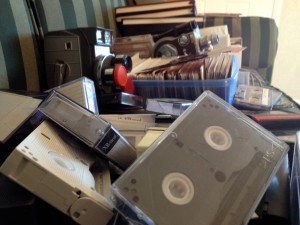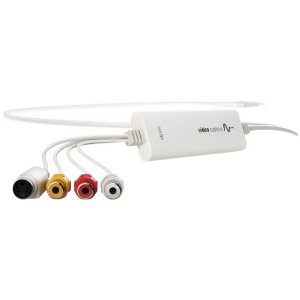 I just finished a project to digitize all my old audiocassettes, videocassettes (home movies), and 8mm tapes to digital. I wish I had done it years ago, because the images and sound had faded a lot.
I just finished a project to digitize all my old audiocassettes, videocassettes (home movies), and 8mm tapes to digital. I wish I had done it years ago, because the images and sound had faded a lot.
Digital will last forever without degradation if you store it digitally (not on a physical medium like a CD or DVD.) I put all the digital copies on my computer, and use Carbonite to keep a secure, off-site backup.
My next project is to scan all the documents I care about (old certificates, letters, programs, etc.) so I have a digital copy of them. Paper fades over time and can get lost, stolen, burned in a fire, or ruined in a flood. Digital copies can last forever. (Keep a safe, off-site backup.)
The Church’s Family History Department offers free scanning of journals and other documents. The scanning machines y do a great job and are very easy to use and do not require you to cut the binding of the diary. The PDF scan can be saved directly to a USB drive.
Once I get all my documents in digital form, I will insert them into my digital life history. For ideas on creating a digital life history, see “Keep a Journal.”
 Note: After paying a company hundreds of dollars to covert my old tapes, I just learned about a video capture device
Note: After paying a company hundreds of dollars to covert my old tapes, I just learned about a video capture device that you can use to connect a VCR or camcorder to your computer for $80, including the software. Let me know if any of you use it to transfer your tapes and how it works for you.


Last year my wife scanned my mission letters that both I wrote and those from family/friends as well as pictures. The next big task will be like you mentioned above. Categorize the images and insert them into a digital life history. I also have chat logs and emails from over the years that can also assist in this process.
A wise friend of mine once said that the durability of information is directly proportional to the time it takes to write it. Letters carved in granite take a long time to write, and a long time to erase. Electronic data can be written – and lost – in the blink of an eye. Moreover, electronic data formats change so rapidly that electronic information that is even 10 years old often cannot be read by modern equipment.
The point is, definitely scan in those records, copy those videos from VHS to more modern formats – but, hang onto the paper copies too. 100 years from now, your descendants will still be able to read your paper journal, but may not be able to find a 2013 era PC capable of displaying the PDF version of the same journal.
“Digitize what you want to keep” but hardly scratched the surface of sharing information. A more in depth article would be welcome. How is it this article was published in January 2020, and yet the 2 comments were given in 2013?
The article was originally written in 2013, but we updated some information in it and republished it in 2020.